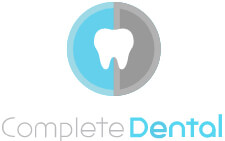At first glance, it seems that they cost more than other dental procedures (especially ones that replace missing or damaged teeth) but could be well worth it as they can last for decades and have a success rate of 95% or higher.
What are dental implants?
Dental implants are an excellent replacement to fill in gaps between natural teeth. They consist of three separate parts.
Implants
These are screw-like structures that are fitted into the jawbone.
Abutments
These are connecting pieces made of the same material placed in the gum tissue to connect the implant and the crown.
Crown
Dental crowns are customised prosthetics made to look, feel and work exactly like natural teeth. They are placed on the abutment and perfectly fill the gap in a dental arch.
How much do dental implants cost?
The cost of dental implants depends on various factors, and while it is not a cheap dental treatment, there are slight variations within the range.
For example, a single dental implant can start at around $3000, and the price of a dental implant arch can start from around $23,000.
Why are dental implants so expensive?
Dental implant cost is higher than most other dental treatments for several reasons, such as:
The Quality of materials used
Dental implants made of high-quality bio-compatible materials such as titanium, zirconium, ceramic and porcelain cost more than those made of lesser-quality materials such as metal compounds.
The number of implants needed
The more dental implants you need, the higher the cost will be. The price of a single tooth implant will be lower than that of dental implant bridges or replacement teeth mounted on an arch.
The skill set and expertise of the dentist
Dental implant surgery is a complex procedure. Dentists study for years and undertake regular training programs for this. They will charge for their skill and experience.
Pre-implantation procedures
Sometimes, a dental implant procedure can require other dental procedures before the actual dental implant treatment (e.g. tooth alignment, gum disease treatment etc.), which can drive up the cost.
Tooth extraction
Extraction of a broken or diseased tooth is necessary before an artificial tooth is implanted in its place.
Bone graft
If a patient’s jaw bone is weak or narrow, it won’t be able to hold the implant. To strengthen the jaw, dentists will perform a surgical procedure called a bone graft.
Sinus lift
This dental procedure involves lifting the sinus membrane to pack bone powder along the upper teeth, which will then integrate with the bone, strengthening it enough for an implant.
Can I get dental implants?
A dental implant is a good option for most people looking for tooth replacement options, especially for those who have:
Broken teeth
People who lose one or more teeth due to an accident or an injury can opt for tooth implants to replace them.
Missing teeth
Sometimes, secondary teeth simply don’t exist in certain people! This could be due to a genetic circumstance, but the good news is that it is easily rectified with a dental implant.
Diseased teeth
Poor oral health can lead to the building up of bacteria on teeth which can eat away at the dental enamel, infecting the inner pulp of the tooth and progressing to the gum tissue.
Extracting diseased teeth is necessary to protect the remaining teeth, the gums and, indeed, the patient’s overall health.
However, your dental and overall health are prime factors determining your dental implant eligibility. You might not be eligible for a dental implant if you:
Smoke
Smokers are at high risk of peri-implantitis, an infection that affects the gums.

Are diabetic
Diabetes hinders the human body’s natural response to fight infections which means people with diabetes are at higher risk of post-surgery gum infections.
Have a weak, narrow jaw
The human body keeps jaw bones strong by recognising a dental root and sending resources to the area. When a tooth is missing, the body stops sending these resources to that area which causes the jaw bone to deteriorate in as little as twelve months.
Do dental implants last long?
The high cost of dental implants can be justified because they can last a lifetime requiring no more care than real teeth, and they provide many benefits which far outweigh their disadvantages.
Will my insurance pay for tooth replacement?
Dental implants are considered cosmetic procedures and are not covered by Medicaid or other private health insurance.
Rare exceptions are made for cases where it can be proven that a patient’s quality of life will diminish if the damaged or missing teeth are not replaced. Alternatively, you could opt for a dental insurance policy that covers the cost of implants.
Dental implants in Coorparoo and Elanora
Complete Dental offers FREE dental implant consultations in our Coorparoo and Elanora clinics. We have a team of experienced, caring dentists who provide our patients with the most advanced dental implant treatment.
Since we are passionate about giving you the best dental care possible, we accept various payment options, such as OpenPay and AfterPay. We also accept insurance and certain public health schemes.
Contact our Elanora or Coorparoo dental clinics today to find out how we can give you a bright, beautiful smile!
Coorparoo: (07) 3801 6503
Elanora: (07) 5235 8199
Note: Any surgical or invasive procedure carries risks. Before proceeding, you should seek a second opinion from an appropriately qualified health practitioner
References
Management of peri-implantitis – PMC
https://www.ncbi.nlm.nih.gov/pmc/articles/PMC3612185/
The Role An Abutment Plays In A Dental Implant | Colgate®
https://www.colgate.com/en-us/oral-health/bridges-and-crowns/the-role-an-abutment-plays-in-a-dental-implant#
Dental Implants: Tooth Implants, Dentures, Dental Crowns & Bridges
https://my.clevelandclinic.org/health/treatments/10903-dental-implants#procedure-details
All on 4 Dental Implants: Cost, Procedure & Risks | smile.com.au
https://www.smile.com.au/dental-treatments/all-on-4-implants#:~:text=In%20Australia%2C%20all%2Don%2D,treatment%20reviews%20and%20x%2Drays.









